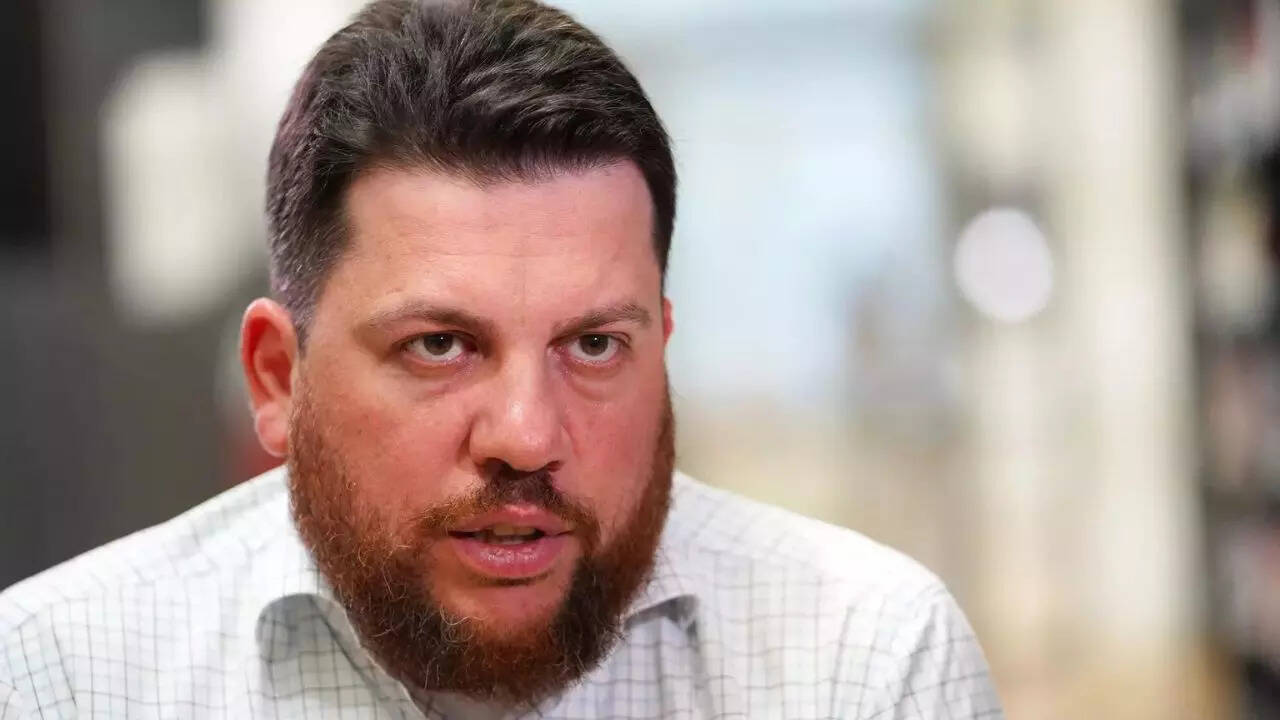Israeli Incursion Into Rafah Intensifies, Deadly Assaults Kill Civilians
Israeli forces on Friday struck targets across the Gaza Strip, with witnesses reporting air raids around the southern city of Rafah, the latest focus of the nearly eight-month war.

Israeli forces on Friday struck targets across the Gaza Strip, with witnesses reporting air raids around the southern city of Rafah, the latest focus of the nearly eight-month war.
Israel launched its military incursion into Rafah in early May despite international objections over the safety of civilians sheltering in the city on Gaza's border with Egypt.
A strike that sparked a fire and killed dozens in a displacement camp at the weekend drew a wave of fresh condemnation.
Witnesses said Friday Israeli strikes hit the Rafah area as well as central Gaza's Nuseirat, and an AFP correspondent reported intense bombardment in the north.
Strikes on two separate locations killed a total of 11 people overnight, medical sources at a hospital in Deir al-Balah and the Nuseirat refugee camp reported.
The Israeli military said its troops "continue... operational activities" in the Rafah area, and found rocket launchers, weapons and "tunnel shafts" in the city centre.
An air strike "targeted and eliminated" a combatant in that area, it added.
In central Gaza, further air strikes "eliminated several terrorists who operated near" troops, the military said without elaborating.
Israel, which has repeatedly vowed to destroy Hamas after the Palestinian combatant group attacked southern Israel on October 7, said on Wednesday its forces had taken over the 14-kilometre (8.5-mile) Philadelphi corridor along the Gaza-Egypt border, where it alleges weapons were being smuggled.
Egypt, a longtime mediator in the conflict, has yet to officially comment on the Israeli takeover, which officials have previously said could violate the two countries' 1979 peace deal.
Amid stalled diplomatic efforts towards a ceasefire, Hamas said it had informed mediators it would only agree a "comprehensive" truce agreement including a hostage-prisoner swap if Israel halts its "aggression".
On Thursday, Israel said its forces had killed about 300 Palestinian combatants in Rafah since launching its military operation in the city.
A stream of civilians fled Rafah, taking their belongings on their shoulders, in cars or on donkey-drawn carts.
Aid at sea
Before the Rafah offensive began, the United Nations said up to 1.4 million people were sheltering in the city. Since then, one million have fled the area, the UN agency for Palestinian refugees, UNRWA, has said.
The United Nations has warned of looming famine in Gaza.
The Israeli seizure of the Rafah crossing has further slowed sporadic deliveries of aid for Gaza's 2.4 million people and effectively shuttered the territory's main exit point.
However, Israel said at the weekend that aid deliveries had been stepped up, including through its Kerem Shalom crossing with Gaza.
Cyprus, the European Union's easternmost member, said humanitarian aid shipped to Gaza was being kept at sea off the territory's coast, after a US-built pier was damaged in bad weather.
In an interview on French channel LCI, Prime Minister Benjamin Netanyahu dismissed as "anti-Semitic slander" accusations Israel was deliberately targeting and starving Gazan civilians.
Netanyahu, who has often spoke to foreign media during the war but largely avoided interviews with Israeli outlets, said the ratio of combatants to civilians killed so far in the Israeli offensive was "the lowest rate we have seen in an urban war".
Hundreds of demonstrators rallied late Thursday outside the offices of private broadcaster TF1, LCI's parent company, in Paris's western suburbs, to protest the broadcast.
Wearing black and white keffiyeh scarves and waving Palestinian flags, the protesters chanted: "Gaza, Paris is with you."
Car, house hit
The Gaza war was sparked by Hamas's October 7 attack on southern Israel, which resulted in the deaths of 1,189 people, mostly civilians, according to an AFP tally based on Israeli official figures.
Combatants also took 252 hostages, 121 of whom remain in Gaza, including 37 the army says are dead.
Israel's retaliatory offensive has killed at least 36,224 people in Gaza, mostly civilians, according to the Hamas-run territory's health ministry.
A medical official at Al-Aqsa Martyrs Hospital in central Gaza's Deir al-Balah said eight people, including two children, were killed in an air strike that hit a house in Al-Bureij refugee camp.
Another source at Nuseirat's Al-Awda Hospital reported three deaths in a strike on a car.
An AFP correspondent saw Israeli military vehicles southwest of Gaza City, in the territory's north.
Sunday's Israeli strike and resulting fire at the Rafah displacement camp killed 45 people, according to Gaza officials, and prompted two days of discussions at the UN Security Council.
Israel has said it targeted a Hamas compound and killed two senior members.
After the strike, Algeria presented a draft resolution to the UN Security Council demanding an immediate ceasefire and the release of all hostages, but it was unclear when it would be voted on.
Amid the fighting, Israeli war cabinet minister Benny Gantz's centrist party submitted a bill to dissolve parliament for an early election, drawing criticism from Netanyahu's right-wing Likud party.
(Except for the headline, this story has not been edited by NDTV staff and is published from a syndicated feed.)



































![Safari Thorium Neo 8-Wheel Luggage Set Trolley Bags (Set of 3) at just Rs. 5,599 [MRP 29,100]](https://savefree.in/uploads/images/202409/image_870x580_66f63845060f0.webp?#)












![Handmade Brown Mango Wood Chopping Board At just Rs. 89 [MRP 599]](http://savefree.in/uploads/images/202303/image_870x580_641bf7e9c2206.jpg?#)


